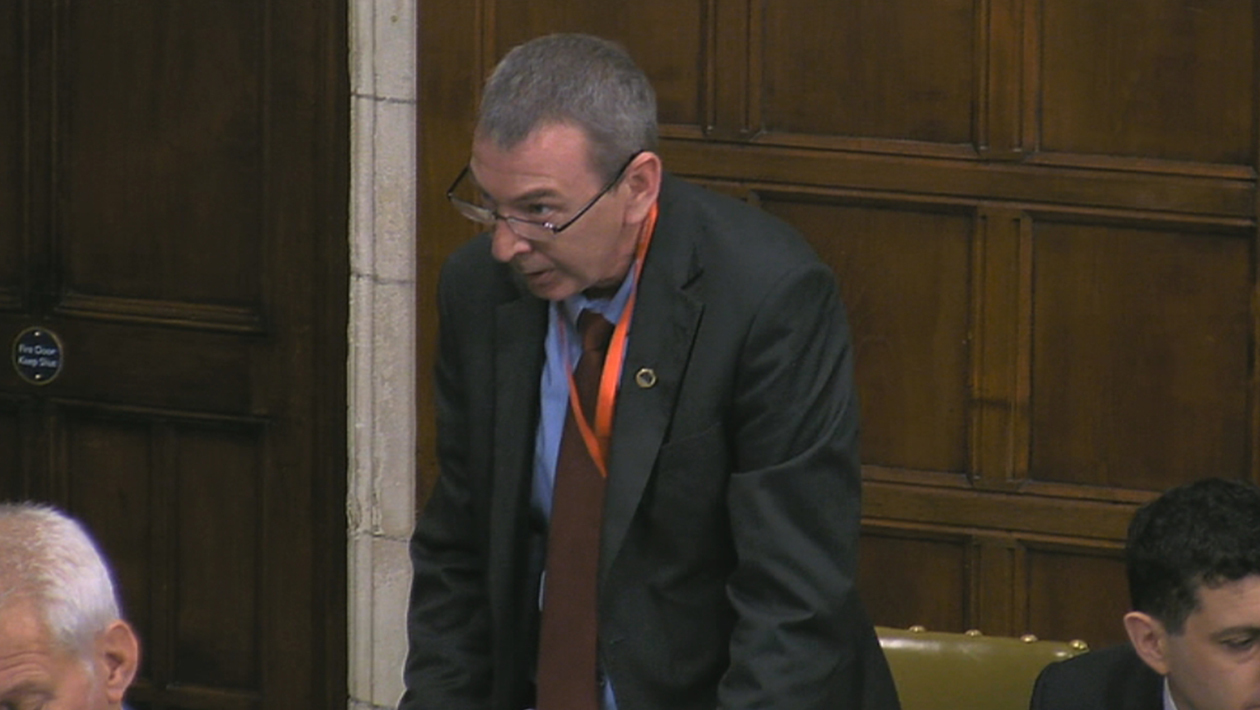This petition was submitted during the 2015-2017 parliament
Petition Change the University fees from £9250 back to the £3000 fee for the UK.
University fees are rising more and more. £9000 for university fees is too high and the stress of being in debt is what puts individuals off applying for degrees.Now that grants have been removed it makes it difficult for family's who need financial support but can't get that anymore.
This petition closed early because of a General Election Find out more on the Petitions Committee website
164,166 signatures
Show on a map the geographical breakdown of signatures by constituency
100,000 signatures required to be considered for a debate in Parliament
Parliament debated this topic
Government responded
This response was given on 1 March 2017
Anyone with the ability to benefit from higher education should have the opportunity to do so. All eligible students can apply for an upfront loan to meet the full cost of tuition fees.
Anyone with the ability to benefit from Higher Education should have the opportunity to do so, irrespective of their background. That is why all eligible students can apply for an upfront tuition fee loan to meet the full cost of their tuition fees, as well as loans for living costs.
By replacing maintenance grants with loans we have been able to increase the funding for living costs that the most disadvantaged students receive by over 10% in the current academic year with a further 2.8% increase for 2017/18.
Universities, too, are spending even more to help those from disadvantaged backgrounds access higher education. In 2017/18, institutions are expected to spend £833.5 million on measures to improve the access and success of disadvantaged students. This is more than double what was spent in 2009/10.
Our repayments system is based on income and not the amount borrowed. Graduates with post-2012 undergraduate loans pay back only when they are earning more than £21,000, and then only 9% of earnings above that threshold. After 30 years any outstanding debt will be written off with no detriment to the borrower. This is entirely different to a commercial loan.
Recent evidence indicates that recent reforms to higher education have not deterred students from disadvantaged backgrounds from going to university. The steps we have taken to ensure higher education remains sustainably financed has enabled us to lift student number controls, so that more people have the opportunity to secure a university place. The proportion of students from disadvantaged backgrounds entering higher education increased from 13.6% in 2009 to 19.5% in 2016 and the application rate for disadvantaged English 18 year olds in 2017 has increased to a record high at the January 15th application deadline.
Lowering tuition fees would carry a number of possible consequences, including a cut to universities and additional demands on public spending, which would be met through higher taxation, including on those who have not themselves benefited from University. This could also mean the re-imposition of student number controls, leading to fewer university places being available to students.
Reinstating the system of maintenance grants would reduce the upfront support available for students from some of the most disadvantaged backgrounds, while costing the taxpayer over £2.5bn per year.
The Government’s approach has struck the right balance between delivering a sustainable system and ensuring higher education remains open and accessible. This has been recognised by the Organisation for Economic Co-operation and Development (OECD), which said we are “one of the few countries to have figured out a sustainable approach to student finance”.
Department for Education
Related activity
MPs investigate student loans
A cross-party group of MPs called the Treasury Committee are investigating student loans.
They are looking at recent changes to the student loan system including:
• the repayment threshold
• interest rates
• tuition fees
• university finances
On Wednesday 18 October at 2.45pm they asked academics about:
• the impact of student loans on public finances and students
• whether fees mean that there is a 'market' for higher education
You can watch the session here:
http://www.parliamentlive.tv/Event/Index/2f85d27f-54ba-4ac0-9890-8c8e8dd3fee9
You can find out more on the Treasury Committee's webpage:
http://www.parliament.uk/business/committees/committees-a-z/commons-select/treasury-committee/inquiries1/parliament-2017/student-loans-17-19/
You can follow the Treasury Committee on Twitter for updates: @CommonsTreasury
What is the Treasury Committee?
The Treasury Committee looks at and questions how the Treasury:
• is run
• spends money
• decides on its policies
It's a cross-party committee of MPs and is independent of the Government.
You can find out more about Treasury Committee on its website: http://www.parliament.uk/business/committees/committees-a-z/commons-select/treasury-committee/
This is a ‘select committee’. Find out how Select Committees work:
https://www.youtube.com/watch?v=o_2RDuDs44c
Tell MPs about value for money and your university experience
A group of MPs called the Education Committee are investigating value for money in higher education.
In particular, they want to hear about:
• The quality of teaching/ contact hours in universities
• Support for students, particularly those from disadvantaged backgrounds
• Facilities available to students on campus
• Graduate outcomes and the employability of students
Get involved by completing this quick survey about your experience: http://www.smartsurvey.co.uk/s/ASN4Q/
The survey will close at midnight on Thursday 14 December 2017.
You can find out more about the Education Committee's inquiry into value for money in higher education on its website:
What is the Education Committee?
The Education Committee looks at and questions how the Government Department for Education:
· is run
· spends money
· decides on its policies
It's a cross-party committee and is independent of the Government.
You can find more information about the Education Committee on their webpage using the link below:
https://www.parliament.uk/education-committee
You can also follow them on Twitter @CommonsEd
This is a ‘select committee’. Find out how Select Committees work:
